
Youth Connections - Learning what it takes to support rangatahi
2023
This report provides evidence-based insights for government, philanthropy, policy and decision makers on how to support rangatahi into quality jobs. It is informed from TSI and TWI’s Youth Connections work during 2019-2023 which saw $2.5m distributed to support Māori and Pasifika rangatahi in south and west Auckland.
It is clear that a holistic approach is required to help rangatahi navigate the transition to adolescence and to work. In a world in which the future of work is dramatically changing, against a backdrop of climate change and deepening inequality. The report spotlights stories of impact and poses a series of questions for future funding in youth transitions and employment.

Tere ki Mua - Moving towards a funding system that supports Pasifika to thrive
2023
The Aotearoa NZ funding system – the system of organisations that fund for-purpose organisations for social good – is not working for Pacific peoples. This think piece is intended to open space within the funding sector for genuine learning and informed talanoa (discussion) about how funders can better support better outcomes for Pasifika.
Tere ki Mua presents the perspectives and experiences of five Pasifika leaders who are working with, within and against the funding system to catalyse change for their communities. Informed by the taonga shared by our Pasifika leaders, we share approaches, tools and resources for funders to use on their journey towards becoming more systems-aware supporters of Pasifika-led change.
Commissioned by the Peter McKenzie Project and co-led by the Southern Initiative and the Western Initiative.

How employers can support Pasifika workforce progression: Uptempo insights and recommendations
2023
Employers are part of the solution to closing the Pacific pay gap and raising Pasifika intergenerational wealth and wellbeing. Equally important are central government levers to incentivise employers to enable Pasifika workforce progression.
In this report we describe our learnings to date about the roles of employers and government and make recommendations on the improvements these sectors could make.

System Levers for Pasifika In-Work Progression
2023
Systematic barriers to job progression, promotion and upskilling perpetuate a low-income trap for many Pasifika households. A key means of shifting Pasifika households out of financial struggle is to ensure working household members progress in the labour market into higher paid work.
This report focuses on the issue of progression and identifies macro-level tools to accelerate Pasifika in-work progression with particular emphasis on the levers of central government.

Kura of the future. Enabling mana motuhake (self determination) for rangatahi in a new green economy: a rangatahi perspective
2023
How might we increase the number of Māori and Pasifika rangatahi into high value green and tech career pathways?
Find out more in this report from Te Taiwhanga Rangatahi who have been imagining an economy of mana that’s future focussed, good for people and great for our natural world too.

Local Government Impact Report – Creating Thriving Communities
2023
What role can local government play in making our food systems more sustainable and accessible?
This report outlines different examples throughout the country including The Southern Initiative’s work in south Auckland.

Co-Designing Poutokomanawa – A Warm and Welcoming Place for Whānau at Manurewa Plunket Family Centre
2023
The Southern Initiative partnered with the Manurewa Plunket Family Centre on the renovation of the centre building.
Using the renovation as the focal point, this report describes how we led Plunket staff and a group of local whānau through a co-design process to shift the Plunket team from a service-led approach, in which staff decide what is delivered and how, to one driven by whānau needs and wishes.

Pasifika-centred adult learning to grow intergenerational wealth: Uptempo insights and system implications
2022
Pasifika wealth is significantly lower than for any other ethnic group. How might we grow intergenerational wealth and wellbeing? And for the many who are stuck in low-paid jobs, what will it take to transition Pasifika workers, quickly, into higher paid roles in sunrise industries?
In this report we describe what we’ve learned about the importance of adult learning in these transitions for ‘aiga.

Increasing Pasifika ‘aiga readiness for workforce progression: Uptempo insights and system implications
2022
Pasifika peoples are disproportionately over-represented in low paid and sunset industries. What does it take to transition Pasifika workers to higher paid, sunrise industries?
Read about how our learning can be scaled through policy, commissioning, mental models, and existing programme delivery.

He Karapa Raraunga: Ōhanga Māori i Tāmaki Makaurau / Data Snapshot: Tāmaki Makaurau Māori Economy
2022
Privately owned, Māori small and medium-sized enterprises are the backbone of the Māori economy. Tāmaki Makaurau is the economic powerhouse of Aotearoa but has been the area most affected by Covid-19 lockdowns.
What does the big data tell us about the impacts for Māori businesses, and what risks do we need to pre-empt?

Te Taiwhanga Rangatahi – An equity-led youth design lab
2022
Tāmaki Makaurau spent twice as long in hard lockdown due to Covid-19 than anywhere else in the country. With significant disruption to young people’s schooling, many didn’t return, leaving school to work as families experienced tough economic times. From our previous research on Youth in the South, we knew that completing Year 13 is a significant protective factor for young south Aucklanders. We also had valuable insights and connections from our Youth Economy work.
This is the story of our collaboration with Manurewa High School to test a flexible learning experience in response to these complexities. The prototype then matured into the design lab, Te Taiwhanga Rangatahi, focused on understanding rangatahi through rangatahi themselves.

Activating an Ecology of Support – A futures visualisation project to inform integrated community-led responses to family violence and sexual violence
2022
Aotearoa/New Zealand continues to have some of the highest rates of family harm in the OECD. As well as being violations of human and women’s rights, this harm undermines our efforts in cultural, economic and social wellbeing and in realising Te Tiriti o Waitangi. Integrated community-led responses will require a significant shift from the current system which is largely reliant on formal service-based approaches and prescribed tauiwi and government-led interventions.
This report on visualising the shift to a different response was a collaboration with Te Puna Aonui (formerly the Joint Venture on Family Violence and Sexual Violence) with the generous support of whānau, community and government partners.

Unleashing the Potential of Whānau Centred and Community Led Ways of Working
2022
is continuing to produce inequitable outcomes particularly for Māori and Pasifika and isn't necessarily working well for ‘all New Zealanders’ either.
This report was commissioned by the Department of Prime Minister and Cabinet as an input into the Review of the Child and Youth Wellbeing Strategy. It describes why we need the shift to locally led responses that are centrally enabled and how it can happen.

Unlocking the potential of local government: Activating a wellbeing ecology, in place
2022
This report draws together insights from ongoing innovation work within local government and describes the untapped potential of local government as an activator and champion of wellbeing. The full potential of local government is only unlocked, however, when it operates beyond a transactional use of existing levers focused on short term savings, and towards valuing multiple and longer-term wellbeing outcomes.
This report was commissioned by the Review into the Future for Local Government to support their draft interim report He mata whāriki, he matawhānui.
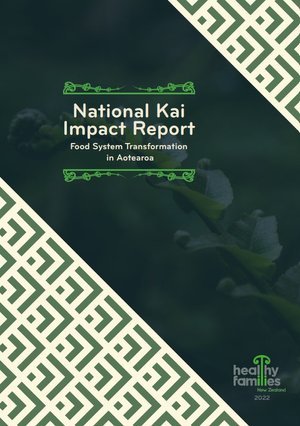
National Kai Impact Report – Food System Transformation in Aotearoa
2022
How can we make our food systems more sustainable and accessible?
Find out more about our Healthy Families work, the difference these initiatives have made and what we learned along the way.

Evidence Brief: Employer Engagement
2021
There are dozens of active labour market policies operating across south and west Auckland at any one time, but they’re not stacking up to the change we should expect to see from that investment.
Often, ‘unemployment’ is framed as a supply side problem. But what about the role of employers/demand side?
This evidence brief reviews the literature, evaluations and practice-based evidence on employers and workforce development.

Exploring the Youth Economy: Phase 1 – Discovery Insights Report
2021
Young people’s role in the economy is consistently narrowly confined to jobs and skills. This does young people, and our economy, a great disservice.
Find out here how young people move through the different realms of the economy, the multiplicity of roles they play and their demands for a greater say in the political economy and shaping the systems that affect their lives.

What works in employment support & job broker-coaching services?
2021
Placing people into employment is relatively straightforward, especially if they are compelled to by the state. But what matters most is the quality of that employment, career progression and people’s attachment to the labour market.
In this evidence brief, we look at what worked and what didn’t in our employment brokering mahi.
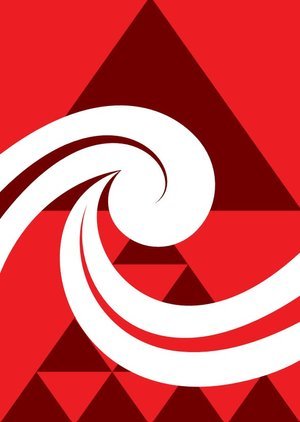
Te Ōhanga Māori i Tāmaki Makaurau – Auckland's Māori Economy
2021
What is the Māori economy and what does it look like?
Read our big data report produced by BERL on Māori workers and businesses for the most comprehensive overview to date of how Māori are faring in the country’s largest city.
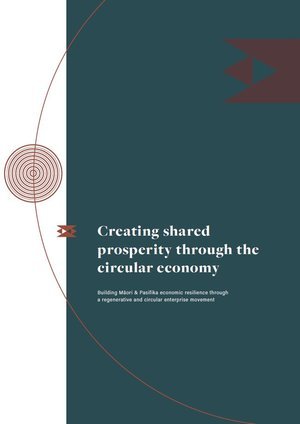
Creating Shared Prosperity through the Circular Economy
2021
Economic inequality is the slow violence relentlessly undermining south Auckland’s prospects. Undoubtedly, this will be exacerbated by the economic shocks from Covid-19 and others still to come. What could a massive mobilisation of investment look like?
Off the back of the Prosperity South and West report, we homed in on Māori and Pasifika businesses and workers pioneering a circular economy like nowhere else in the world.
Read more about our ambitious vision.

Prosperity South and West
2021
When Covid-19 hit, we knew that the economic shock would hit south and west Aucklanders first, hardest, and longest, as happens with every economic shock.
Joining forces with Tātaki Auckland Unlimited, we developed a bold vision on how we could disrupt the viscous cycle of inequity and turn the crisis into an opportunity for transformational change.
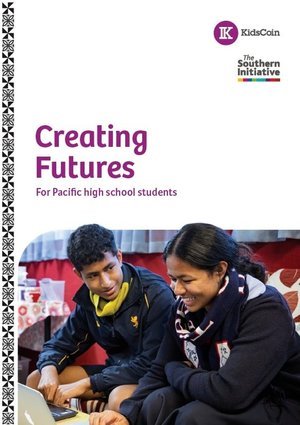
Creating Futures for Pacific high school students
2021
KidsCoin creates learning opportunities that grow curiosity, passion, understanding and confidence in financial literacy and digital technologies. This Māori and Pasifika-led social enterprise delivering tangible social, cultural, and economic benefits for Māori and Pasifika youth, their whānau and communities.
Find out more about why we’re big fans of KidsCoin.

'What about the Menz?'
2021
This big data story about dads in south Auckland is a collaboration between The Southern Initiative and the Social Wellbeing Agency. How having a baby affects dads was one of the key findings of an earlier report Towards better social sector decision-making and practice – A social wellbeing approach.
In this big data report, we look at how income, occupation, length of time in a job and leave eligibility results in one in every four Māori and Pasifika dads are missing out on partner parental leave.
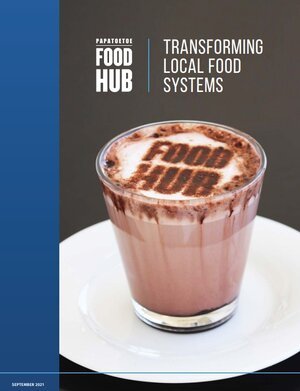
Papatoetoe Food Hub – Transforming Local Food Systems
2021
Since emerging as an idea in 2017, the Papatoetoe Food Hub in south Auckland has been growing a community-based approach to providing good and affordable food.
In this report we describe the journey and our learnings.

Kia Tipu Te Ao Mārama
2021
Social innovation requires discipline from design to execution, to learning and iteration. Te Korekoreka and the Niho Taniwha are two evaluative frameworks that we use in understanding the practice in, and effect of, our work.
In this paper we share the journey of creating these evaluative frameworks and how we use them at both The Southern Initiative and Tokona te Raki: Māori Futures Collective of Te Rūnanga o Ngāi Tahu.
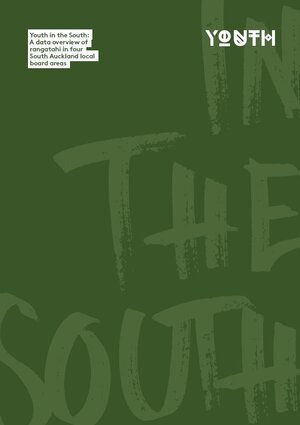
Youth in the South – A Data Overview of Rangatahi in Four South Auckland Local Board Areas
2020
How might we better design and deliver youth employment initiatives in south Auckland? It starts by having the right information. In this follow-on report from He Awa Ara Rau, we interpret what the big data tells us about the lives of thousands of young south Aucklanders.
This big data report shows that, with the right focus, we could make a big difference to young people’s prospects.
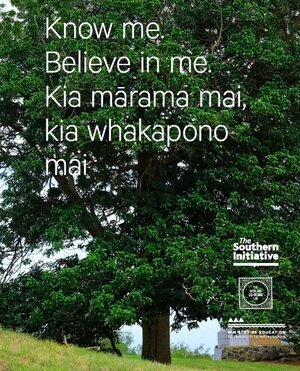
Know me, Believe in me / Kia mārama mai, kia whakapono mai
2020
A precursor to Te Taiwhanga Rangatahi youth lab, this collaboration between the Ministry of Education, The Southern Initiative, Co-design Lab and Middlemore Foundation provides insights gained from lived experiences and observations of the education system. We sought rangatahi, whānau and school perspectives on supporting attendance, engagement and wellbeing.
Read more about what we discovered with Manurewa students, including from Manurewa High School, and how we might scale innovations within the education system to improve rangatahi experiences in secondary schools.
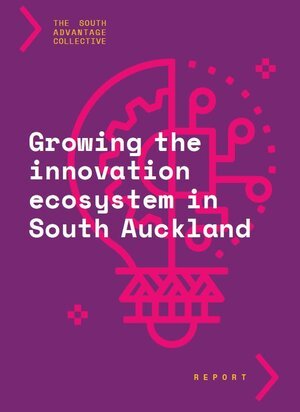
Growing the innovation ecosystem in South Auckland
2020
The South Advantage Collective is growing the innovation ecosystem in south Auckland. This report outlines how the Collective has been spearheading this for the past two years and lays out a bold vision for south Auckland’s digital future post-COVID-19 world.
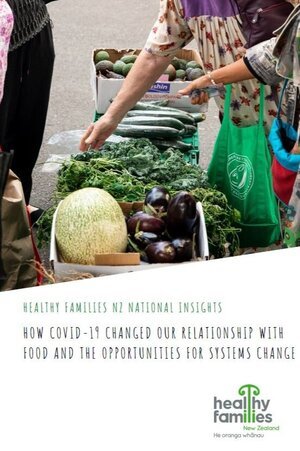
Healthy Families National Insights Report – How Covid-19 changed our relationship with food and the opportunities for systems change
2020
This national report across Healthy Families sites provides five key insights on the impact of the first Covid-19 lockdown on food systems. Read here about what happened in south Auckland.

Level 4 Snapshot: early and emerging impressions from South and West Auckland
2020
In March 2020, the country went into nation-wide lockdown to curb the spread of Covid-19. What did this mean for places like south and west Auckland, already bearing a heavy burden of economic inequality? What strengths were activated and where did pressure points emerge or worsen?
This snapshot brings together themes and impressions gathered through the course of our work and connections with whānau, businesses and community partners during the level 4 lockdown that started in March 2020.

Towards better social sector decision-making and practice – A social wellbeing approach
2020
The first 1,000 days of a baby’s life plays a significant role in the trajectory for their future. Using longitudinal data from the Having a Baby in South Auckland project, The Southern Initiative and the Social Wellbeing Agency brought together this significant data with real-life experiences.
This report paints a vivid picture about the stresses whānau experience on and around the birth of a child.

Māori Co-design Ethics Hui Summary
2020
The co-design philosophy, methodology and practice requires working with people, and, as in our equity-focussed mahi, often those who fare worst in relation to social, economic, environmental and cultural wellbeing. As with any practice, indigenous epistemologies are increasingly recognised as critical to successful responses. But how do we also ensure these things are incorporated in brave, ethical, safe and appropriate ways?
This report summarises key insights and recommendations of a hui of co-design practitioners.

Co-design in Aotearoa New Zealand: a snapshot of the literature
2020
Co-design refers to a philosophical approach and evolving set of methodologies for involving people in the design of the services, strategies, environments, policies, processes that impact them.
This review gathers readily available local scholarship and literature about co-design in Aotearoa New Zealand (up to September 2019) as a quick reference for practitioners.

Review of TSI 2020 – Strengths & Opportunities
2020
A developmental review of our work by Professor Ingrid Burkett and Cathy Boorman from The Centre for Systems Innovation (formerly The Yunus Centre) at Griffith University, Australia, and is a follow-up to a 2017 review.
Find out more about what makes us tick and how we stack up against other innovation units internationally.
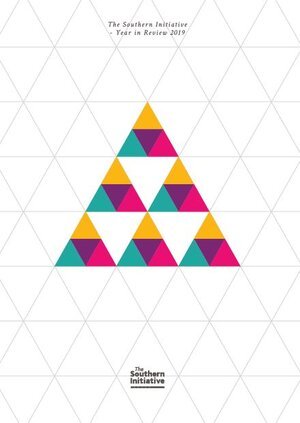
Year in Review – 2019
2020
To ensure an equitable recovery from Covid-19, the three key themes presented in our work of mana ā-whānau, unlocking potential and systems innovation are more relevant and urgent than ever before.
This report provides an overview of our work during 2019.
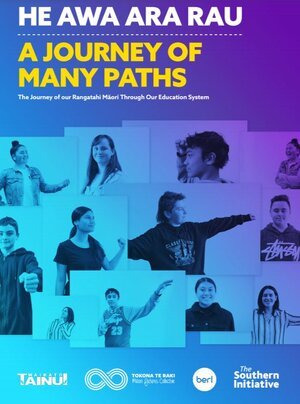
He Awa Ara Rau – A journey of many paths
2019
This report is a big data collaboration between Waikato-Tainui, The Southern Initiative, Tokona te Raki: Māori Futures Collective of Te Rūnanga o Ngāi Tahu and BERL. We look at how rangatahi experience pathways from the education system to the labour market across three different geographical areas of Aotearoa.
Read more about how we can do better for rangatahi and why we need to act with urgency.

Education pipeline: Outcomes for Māori students
2019
This report produced by BERL describes the key observations of the data of two large cohorts of Māori from the whole of Te Waipounamu, the Waikato region and south and west Auckland. It tracks their pathways through education and on to the labour market and subsequent earnings. The first cohort comprises 49,500 year 11 students and then followed 29,900 rangatahi Māori, the second cohort, to 25 years of age. The data is drawn from the Integrated Data Infrastructure, and the subsequent He Awa Ara Rau and Youth in the South reports are based on this information.

Education awa: The Southern Initiative
2019
This report produced by BERL provides statistics on two large cohorts of Māori and Pasifika young people in south and west Auckland and their pathways from education to the labour market. The first cohort comprises 17,700 year 11 students and then followed 11,000 young people, the second cohort, to 25 years of age. The data is drawn from the Integrated Data Infrastructure, and the subsequent He Awa Ara Rau and Youth in the South reports are based on this information.

Our unique Makerspace: Partnering to prepare youth for the future of work
2019
The nature of work is rapidly changing. If we don’t prepare young south Aucklanders, they run the risk of being left behind.
Read about our collaboration with Manurewa High School to build the skills that will be required to succeed in an increasingly capricious economic environment.
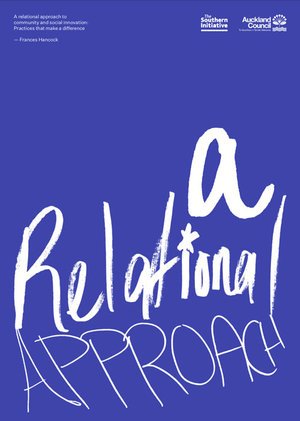
A Relational Approach Report
2019
We asked grassroots change makers about what is most important to them in their work with The Southern Initiative. The resounding response was our focus on relationships and not transactions.
Read more about why relationships matter, what ‘good’ looks like and why the public sector needs to take note.

Learning in complex settings: A case study of enabling innovation in the public sector
2019
Affordable, secure, warm, safe and dry housing is a prime example of a “complex” or “wicked” problem – there is no single cause or solution, there is often contradiction and certainly multiple perspectives and competing interests.
Using our Healthy Homes 2016 and 2018 co-design work as an example, we look at the insights from how it was delivered and how the public sector might better engage with complex challenges in an increasingly multi-crisis environment.
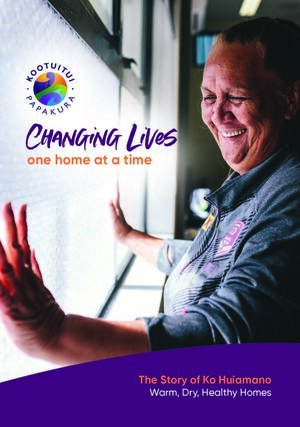
Changing lives one home at a time
2019
The default position to tackling pressing issues in south Auckland is to pile in with more services. But what ‘hard to reach’ women told us is that they don’t want social services; they want mana motuhake, mutual aid, solidarity and pro-social relationships with others in their communities. Bringing together the expertise and contacts of our earlier Healthy Homes and Early Years work, we partnered with wāhine and Papakura Kootuitui Trust to co-design Ko Huiamano.
This is the story of Ko Huiamano’s peer-to-peer venture and break-through innovation where women achieved their aims through creating warmer, dryer and healthy homes for whānau in their community in affordable ways.
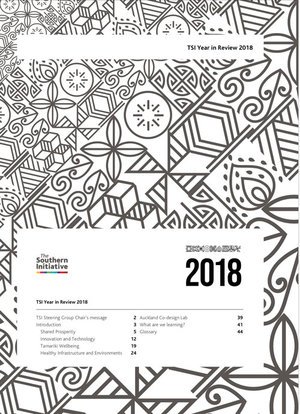
Year in Review – 2018
2018
This report provides an overview of our work during 2018.
Find out more about our portfolio of initiatives and our impact.
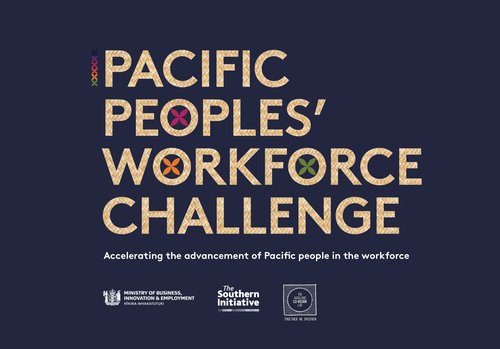
Pacific Peoples’ Workforce Challenge
2018
Most labour market analyses in poor areas like south and west Auckland tend to focus on unemployment. Whilst important, it’s not the most pressing issue – most Pasifika people are employed but they are disproportionately stuck in low paid occupations and industries and their underutilisation and unexplainable pay gaps seldom get attention.
In this report, we ask: how might we change the employment landscape for Pasifika workers?
Find out here where our journey to Uptempo originally began.
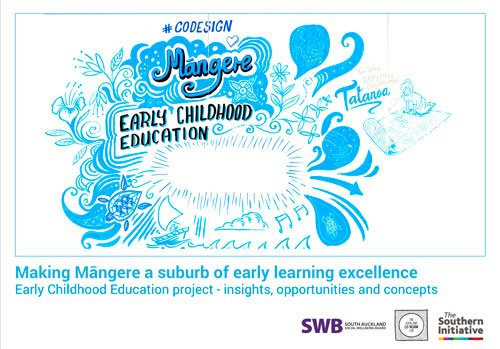
Making Māngere a suburb of early learning excellence
2018
Quality early childhood education helps to buffer disadvantages experienced by children, particularly those from low-income, vulnerable families. In collaboration with the South Auckland Social Wellbeing Board, we worked with parents and early childhood education providers to understand what excellence looks like for parents in Māngere and how we can get there. Read about our journey here.

Exploring the intersection of design & policy in Aotearoa NZ: 7 case studies
2018
Human-centred design and co-design are now commonplace in the design of public services. These approaches can also help the public sector to design better public policy, by helping us engage with the complexity in which social policy is created and operates.
This booklet is an output from Policy by Design, a two-day symposium held in Auckland in May 2018 for representatives from across central and local government in Aotearoa New Zealand. It presents case studies on how design methodologies can deliver better policy making.

Healthy Homes Initiative – Auckland
2018
The Ministry of Health asked The Southern Initiative and Co-design Lab teams to help develop practical solutions for families who were part of the Auckland Wide Healthy Homes Initiative (AWHI).
In this follow up to the 2016 report, we document the process of testing co-designed ideas and solutions for warmer, drier and safer homes.

Early Years Challenge – supporting parents to give tamariki a great start in life
2017
In collaboration with ‘hard to reach’ mums and a range of central government and NGO partners, we learnt what we and others can do to create positive transformations in young lives. This report outlines the systems change needed to make those transformational shifts in south Auckland and was the genesis of our Tamariki Wellbeing programme.
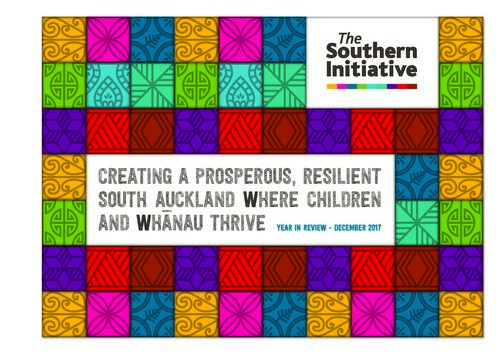
Creating a prosperous, resilient south Auckland where children and whānau thrive – Year in Review 2017
2017
Find out more about our work and partnerships in 2017, and what we learned along the way.
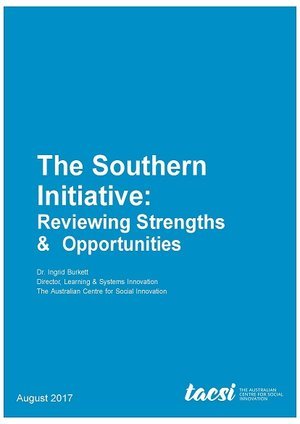
The Southern Initiative: Reviewing Strengths & Opportunities
2017
In this, her first review of The Southern Initiative, Professor Ingrid Burkett, then at The Australian Centre for Social Innovation, gives us her independent appraisal of our innovation work.
Also, see Professor Burkett’s later 2020 review and what changes she observed.

The Attitude Gap Challenge
2016
Why does there appear to be a disconnect between young people looking for work and employers looking for workers?
In one of the first co-design sprints of the Co-design Lab and The Southern Initiative, this multi-agency skills and employment challenge explored the importance of work ready youth and youth ready employers throughout the employment journey. This body of work then went on to influence The Southern Initiative’s Youth Economy programme.

Healthy Homes Initiative – Auckland. Co-design: making Auckland homes warmer and drier
2016
The Ministry of Health asked The Southern Initiative and Co-design Lab teams to help develop practical solutions for families who were part of the Auckland Wide Healthy Homes Initiative (AWHI).
This is the first of two reports where we document the process of getting AWHI back on its feet before successfully transferring the renewed programme to community groups and NGOs. Also see our follow-up 2018 report.

Exploring Security of Tenure Through Co-Design
2015
‘Housing’ is not just about homes for people; for decades it has been seen as an investment strategy. With Auckland firmly in the grip of a housing crisis, what does this mean for people affected by this economic model?
This report describes what we learnt about tenancy issues through a design led approach. It also bears a strong relationship to our later work on Healthy Homes in 2016 and 2018.





















































